#luisa amman casati
Explore tagged Tumblr posts
Photo
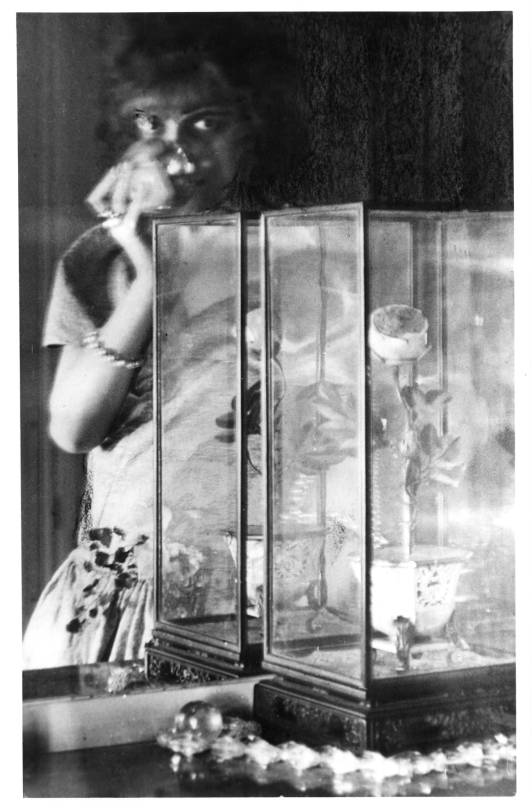
1922 Man Ray, Marchesa Luisa Casati.
"In 1922, Luisa visited a young and still unknown photographer named Man Ray. In his autobiography, the American tells the story of the photo that became the most famous of all the representations of the Marchioness Casati (...) "I drew a few where one could distinguish a semblance of face; On one of the negatives, we saw three pairs of eyes. It could have been mistaken for a surreal version of the Medusa. It was precisely this photo that delighted her: I had made a portrait of her soul, she said, and she ordered dozens of copies from me. I wish my other clients had been so easy to please. The photo of the marquise went around Paris. Figures from the most closed circles began to come, all expecting miracles. I had to leave my hotel room and find a real studio. » (x)
#1922#portrait#man ray#marchesa luisa casati#luisa casati#marchesa casati#marquise casati#Marquise luisa casati#la Marquise#luisa amman casati#Luisa Adele Rosa Maria von Amman#Luisa Adele Rosa Maria Amman#Luisa Amman#Marquise Casati Stampa di Soncino#Marchesa Casati Stampa di Soncino#Luisa Marchesa Casati Stampa Di Soncino#Luisa Casati Stampa di Soncino#Marchesa Casati Stampa
194 notes
·
View notes
Text
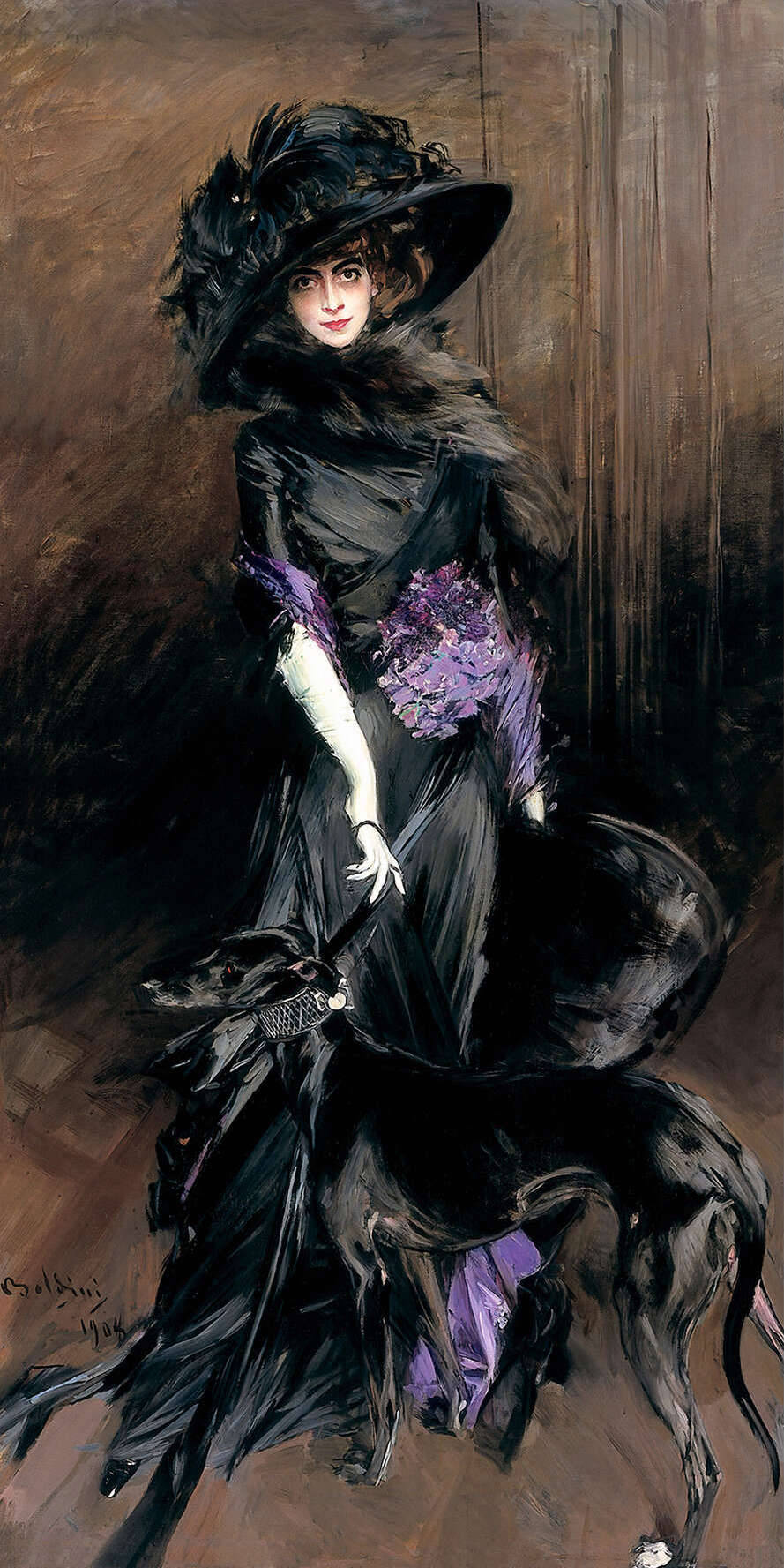
#luisa casati#marchesa casati#muse#patroness#Luisa Amman#socialite#art#painting#giovanni boldini#luisa#1900s#1908
35 notes
·
View notes
Text
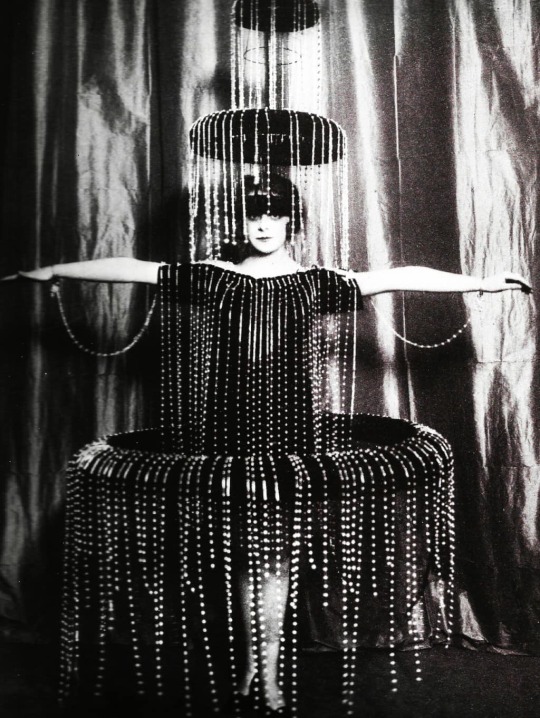

THE MARCHESA CASATI
Marchesa Luisa Casati: An inspiringly decadent true tale of a bizarre Italian aristocrat. Pet cheetahs, séances and dresses made from lightbulbs, the heiress, socialite and artist's muse Marchesa Luisa Casati led a life every bit as unusual as her outfits.
Luisa, Marchesa Casati Stampa di Soncino (born Luisa Adele Rosa Maria Amman; 23 January 1881 – 1 June 1957), was an Italian heiress, muse, and patroness of the arts in early 20th-century Europe.
Casati was known for her eccentricities that delighted European society for nearly three decades. The beautiful and extravagant hostess to the Ballets Russes was something of a legend among her contemporaries. She astonished society by parading with a pair of leashed cheetahs and wearing live snakes as jewellery.
She captivated artists and literary figures such as Robert de Montesquiou, Romain de Tirtoff (Erté), Jean Cocteau, and Cecil Beaton.[citation needed] She had a long-term affair with the author Gabriele d'Annunzio, who is said to have based on her the character of Isabella Inghirami in Forse che si forse che no (Maybe yes, maybe no) (1910).[citation needed] The character of La Casinelle, who appeared in two novels by Michel Georges-Michel, Dans la fete de Venise (1922) and Nouvelle Riviera (1924), was also inspired by her.
In 1910, Casati took up residence at the Palazzo Venier dei Leoni, on Grand Canal in Venice, owning it until circa 1924. In 1949, Peggy Guggenheim purchased the Palazzo from the heirs of Viscountess Castlerosse and made it her home for the following thirty years. Today it is the Peggy Guggenheim Collection, a modern art museum on the Grand Canal in the Dorsoduro sestiere of Venice, Italy.
Casati's soirées there would become legendary. Casati collected a menagerie of exotic animals, and patronized fashion designers such as Fortuny and Poiret. From 1919 to 1920 she lived at Villa San Michele in Capri, the tenant of the unwilling Axel Munthe. Her time on the Italian island, tolerant home to a wide collection of artists, gay men, and lesbians in exile, was described by British author Compton Mackenzie in his diaries.
Numerous portraits were painted and sculpted by artists as various as Giovanni Boldini, Paolo Troubetzkoy, Adolph de Meyer, Romaine Brooks (with whom she had an affair), Kees van Dongen, and Man Ray; many of them she paid for, as a wish to "commission her own immortality".[citation needed][citation needed] She was muse to Italian Futurists such as F. T. Marinetti (who regarded her as a Futurist) Fortunato Depero, Giacomo Balla (who created the portrait-sculpture Marchesa Casati with Moving Eyes), and Umberto Boccioni. Augustus John's portrait of her is one of the most popular paintings at the Art Gallery of Ontario; Jack Kerouac wrote poems about it and Robert Fulford was impressed by it as a schoolboy.
44 notes
·
View notes
Text
1 luglio … ricordiamo …
1 luglio … ricordiamo … #semprevivineiricordi #nomidaricordare #personaggiimportanti #perfettamentechic
2018: Gillian Lynne, Dame Gillian Barbara Lynne, è stata un’attrice teatrale, ballerina, coreografa e regista teatrale britannica. (n. 1926) 2017: Heathcote Williams, poeta, attore e commediografo inglese. n. 1941) 2012: Laura Villa, pseudonimo di Emilia Laura Facetti, cantante italiana.(n. 1930) 2011: Leslie Brooks, nata Virginia Leslie Gettman, attrice statunitense. Iniza come modella e cover…

View On WordPress
#1 luglio#1 luglio morti#Ben Turpin#Bernard Turpin#Claire Kelly#Dame Gillian Barbara Lynne#Eugene Maurice Orowitz#Geoffrey Kerr#Gillian Lynne#Heathcote Williams#Karl Malden#Laura Villa#Leslie Brooks#Luisa Adele Rosa Maria Amman#Luisa Casati#Margaux Hemingway#Marlon Brando#Michael Landon#Mladen George Sekulovich#Robert Charles Durman Mitchum#Robert Mitchum#Sophia Kosow#Sylvia Sidney#Virginia Leslie Gettman#Walter John Matthow#Walter Matthau
0 notes
Text
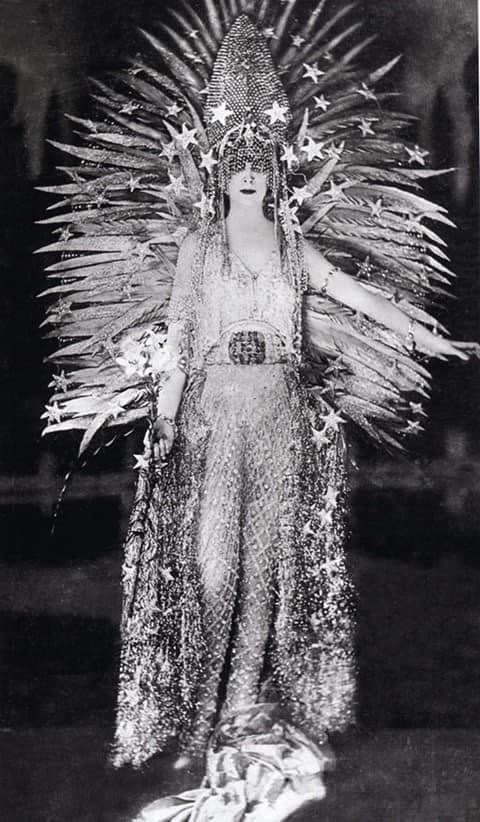
THE MARCHESA CASATI
Luisa, Marchesa Casati Stampa di Soncino (born Luisa Adele Rosa Maria Amman; 23 January 1881 – 1 June 1957), was an Italian heiress, muse, and patroness of the arts in early 20th-century Europe.
Casati was known for her eccentricities that delighted European society for nearly three decades. The beautiful and extravagant hostess to the Ballets Russes was something of a legend among her contemporaries. She astonished society by parading with a pair of leashed cheetahs and wearing live snakes as jewellery.
83 notes
·
View notes
Text
accadde...oggi: nel 1881 nasce Luisa Casati Amman, di Verena Mantovani
accadde…oggi: nel 1881 nasce Luisa Casati Amman, di Verena Mantovani
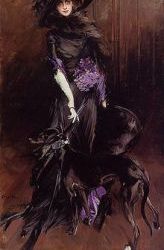
Milano 1881 – Londra 195
Voglio essere un’opera d’arte vivente
Quando nasce Luisa, Milano vive uno dei suoi momenti di maggior espansione economica e culturale, una fin de siècle frenetica e raffinata. Il padre, Alberto Amman, possiede un moderno e fiorente stabilimento cotoniero. Per il contributo dato all’aumento del reddito nazionale Re Umberto I gli conferisce il titolo di conte. La madre,…
View On WordPress
0 notes
Video
(via Mysteries Of Venice - The Lady Of Burano - The Divine Marq… | Flickr)
Mysteries Of Venice - The Lady Of Burano - The Divine Marquise by Daniel Arrhakis (2023)
With the music : Dark Autumn Music - Autumn Chills / Brandon Fletcher
youtu.be/Rb7SPCryTZM?list=PLvt6HApChohD2bqzTmx3zmdxTkIIlUtY6
The Lady Of Burano - The Divine Marquise (*)
Luisa Amman was born in Milan in 1881 into a very rich family, as her father was a cotton producer. She soon showed a strong and eccentric personality and became passionate about the lives of great people, such as the Empress of Austria Sissi.
Her androgynous appearance, her slender and thin physique, her penetrating and cheeky gaze always attracted the attention of those around her. Little more than an adult, she chose to marry the Marquis Camillo Casati Stampa di Soncino, becoming the Marquise Luisa Casati Stampa. But she discovered very soon that the role of a quiet life of wife and mother did not agree with her free and rebellious soul to the stereotypes of the time.
Only after 10 years of marriage she choose to leave Milan to move to Venice and live her eccentric and nonconformist spirit of life.
She bought the Palazzo Venier of Lions on the Grand Canal and in the villa she held sumptuous parties and dances that attracted prominent personalities from all corners of the world, and populated the garden with exotic animals, such as albino blackbirds, leopard cats, parrots, boas and a cheetah.
One of her most singular habits was to walk in St. Mark's Square in the evening, naked, covered only with a fur coat holding her cheetah on a leash, while a faithful servant would follow her with a torch so that she would be illuminated in the darkness of the night and admired by passers-by.
The frequentation of literary circles allowed her to meet Gabriele D'Annunzio with whom she lived a long history of clandestine love, as she was still married to the Marquis.
But there was another love that remained secret until today, which made her go to the island of Burano on certain nights of the new moon, hidden behind a porcelain mask and ivory silk robes. On the island they called her the "Lady In White And Copper" or the "Mysterious Lady of Burano".
The unbridled luxury of Casati did not last forever and in the last years of her life she left Venice for London, where she died in total misery in 1957, taking their best kept secret with her.
(*) History (largely based on true facts) and Image by Daniel Arrhakis.
0 notes
Photo
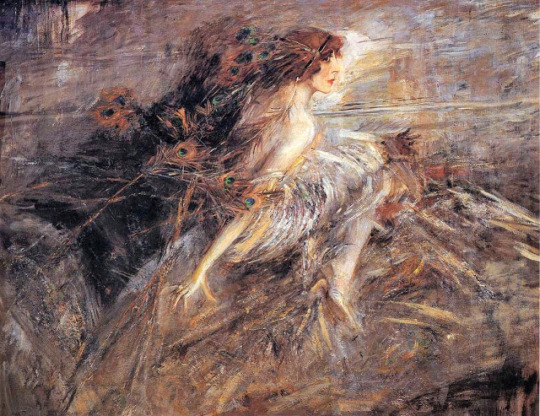
THE ART
Luisa Casati Stampa di Socino, Marchioness di Casati, née von Amman of The Counts von Amman (1881-1957) by Boldini
#the art#marchesa casati#luisa casati#marchioness casati#italia#italy#italian aristocracy#italian nobility#3royal#royals#royalty#royaltyedit#boldini
15 notes
·
View notes
Photo
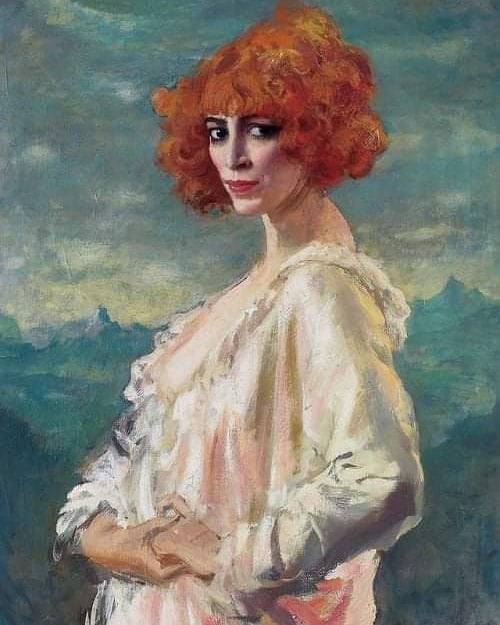
Née en 1881, la plus riche héritière d'Italie est morte en 1957, fouillant les poubelles de Londres. Luisa Amman, dite « La Casati », n'était pas belle, elle était spectaculaire. Brillante, exhibitionniste, fascinante, imprévisible et prenant l'extravagance très au sérieux, elle voulait « faire de sa vie une oeuvre d'art ». #lacasati #histoiredelart (à Neuenburg, Neuchatel, Switzerland) https://www.instagram.com/p/B465MtjnnVN/?igshid=166wrlrnm4hpz
0 notes
Photo
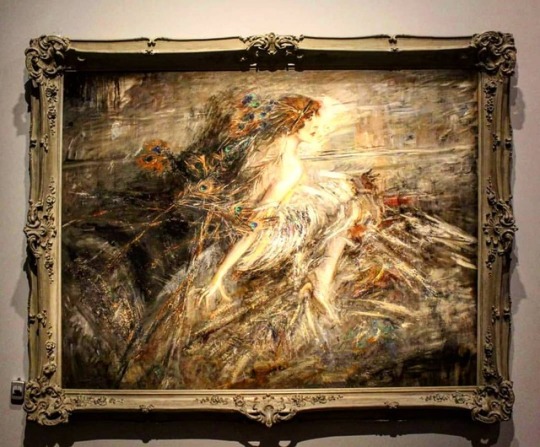
Uno dei tanti ritratti di Luisa Amman Casati Stampa di Giovanni Boldini, donna che con le sua eccentricità ha caratterizzato il suo tempo #luisaamman #luisacasati #marchesaluisacasati #giovanniboldini #portrait #artexhibit #ferrara #ferrara2019 (presso Palazzo dei Diamanti) https://www.instagram.com/p/BvgNWnphZNx/?utm_source=ig_tumblr_share&igshid=qf0g5d4ynoce
0 notes
Photo

Luisa Casati ( Luisa, Marchesa Casati Stampa di Soncino, Luisa Adele Rosa Maria Amman, Marchesa Luisa Casati ) - była włoską dziedziczką, muzą i patronką sztuki w Europie na początku XX wieku. Urodziła się w Mediolanie, młodsza z dwóch córek Alberta Ammana i jego żony Lucii (z domu Bressi). Jej ojciec był pochodzenia austriackiego , a jej matka była Włoszką i Austriaczką. Jej ojciec został policzony przez króla Umberto I. Jej matka zmarła, gdy Luiza miała trzynaście lat, a jej ojciec zmarł dwa lata później, po czym jego córki, Luisa i jej starsza siostra, Francesca (1880-1919, poślubiła Giulio Padulli ), podobno najbogatsze kobiety we Włoszech. Marchesa, znana z celebrytów, słynęła z ekscentryczności, która zdominowała i zachwyciła społeczeństwo europejskie przez prawie trzy dekady. Piękna i ekstrawagancka gospodyni Baletów Rosyjskich była czymś w rodzaju legendy wśród jej współczesnych. Zaskoczyła społeczeństwo paradując z parą smyczy gepardów i nosząc żywe węże jako biżuterię. Urzekała artystów i postaci literackich, takich jak Robert de Montesquiou , Romain de Tirtoff ( Erté ), Jean Cocteau i Cecil Beaton. Miała długotrwały romans z autorem Gabriele d'Annunzio, która podobno oparła na niej postać Isabelli Inghirami w Forse che si forse che no (Może tak, może nie) (1910) ). Postać La Casinelle, która pojawiła się w dwóch powieściach Michela Georgesa-Michela , Dans la fete de Venise (1922) i Nouvelle Riviera (1924), również była inspirowana przez nią. W 1910 r. Casati zamieszkał w Palazzo Venier dei Leoni , na Canale Grande w Wenecji , będąc właścicielem do ok. 1924 r., W 1949 r. Peggy Guggenheim kupiła Palazzo od spadkobierców Viscountes Castlerosse i uczyniła go domem przez następne trzydzieści lat , to kolekcja Peggy Guggenheim , nowoczesne muzeum sztuki na Canal Grande w Dorsoduro sestiere w Wenecji, Włochy. Wieczory Casati'ego stały się legendarne. Casati zebrał menażerię egzotycznych zwierząt i patronował projektantom mody, takim jak Fortuny i Poiret . W latach 1919-1920 mieszkała w Villa San Michele na Capri , najemcy niechętnego Axela Munthe. Jej czas na włoskiej wyspie, tolerancyjny dom dla szerokiej kolekcji artystów, gejów i lesbijek na wygnaniu, opisał brytyjski pisarz Compton Mackenzie w swoich dziennikach. Jej liczne portrety były malowane i rzeźbione przez artystów tak różnych jak Giovanni Boldini , Paolo Troubetzkoy , Adolph de Meyer Romaine Brooks (z którą miała romans), Kees van Dongen i Man Ray; wiele z nich płaciła za pragnienie "zlecenia własnej nieśmiertelności". Była muzą włoskich futurystów, takich jak FT Marinetti , Fortunato Depero i Umberto Boccioni. Portret Augusta Johna jest jednym z najbardziej popularnych obrazów w Galerii Sztuki w Ontario Jack Kerouac napisał wiersze o tym, a Robert Fulford był pod wrażeniem tego jako uczeń. W 1930 r. Casati zgromadził osobisty dług w wysokości 25 milionów dolarów. Ponieważ nie była w stanie spłacić swoich wierzycieli, jej rzeczy osobiste zostały sprzedane na aukcji. Projektant Coco Chanel był podobno jednym z oferentów. Casati uciekła do Londynu, gdzie mieszkała w porównywalnym ubóstwie w jednopokojowym mieszkaniu. Chodziło o to, że widziano ją grzebiącą w skrzyniach w poszukiwaniu piór w celu ozdobienia jej włosów. 1 czerwca 1957 r. Marchesa Casati zmarła z powodu udaru w jej ostatniej rezydencji w 32 Beaufort Gardens w Knightsbridge , lat 76. Po mszy żałobnej w Oratorium Brompton Marchesa została pochowana na Cmentarzu Brompton. Została pochowana w stroju z czarnej i lampartowej skóry i pary sztucznych rzęs. Została również pochowana z jednym z ukochanych wypchanych pekińskich psów. Jej nagrobek jest małym grobowym znaczkiem w kształcie urny ułożonej w sukno z łupem kwiatów na przód. Napis na nagrobku, który błędnie określa jej "Louisa", a nie "Luisa", jest wpisany w cytat, "Wiek nie może jej uschnąć, ani zwyczaj zneutralizować jej nieskończoną różnorodność", od Antony'ego i Kleopatry Szekspira. Postacie oparte na Casati były grane przez Vivien Leigh w sztuce La Contessa (1965) i Ingrid Bergman w filmie A Matter of Time (1976). W 1998 roku John Galliano oparł na niej swoją kolekcję Spring / Summer Christian Dior. Suknie z tej kolekcji zostały wystawione w Metropolitan Museum of Art Fashion Institute. Casati był inspiracją dla innych zespołów Galliano stworzonych dla jego kolekcji jesień-zima 2007/2008 Bal des Artistes haute couture dla Diora. Projektantka kolekcji Wiosna / Lato 2007 Alexandra McQueena została zainspirowana przez Casati. Casati jest również imiennikiem domu mody Marchesa, którego założycielami byli brytyjscy projektanci Georgina Chapman i Keren Craig. W maju 2009 roku Karl Lagerfeld zadebiutował kolekcją Cruise-wear 2010 na Lido w Wenecji, dla której Casati znów był główną muzyką. W lutym 2016 r. Londyński projektant Omar Mansoor zamyślił swoją jesienną kolekcję zimową na Casati podczas London Fashion Week i Paris Fashion Week.
1 note
·
View note
Text

6 notes
·
View notes
Text
MonnaLisa con melograno
“Villa a Cinisello Balsamo, casino di caccia a Gallarate, un castello a Cusago, poteva mai Coré la megalomane secondare una vita tanto ordinaria? Tanto più se condotta al fianco di quel tristo Camillo Casati, così asservito alle consolazioni di mammà e del ratafià...Del resto, con degli arcani come i suoi: un padre magnate della finanza milanese e cotonifici a reddito, come non divenire l'anamorfosi astrale delle eroine più dannunziane? Già da bambina, vezzata alla malevola più preraffaellita; signorinella, indigestioni di Simonette Vespucci,Ginevre Sforza e Caterine Riario... Lucia Amman sarebbe mai finita a far sogni dolicocefali e biondi come una qualunque sartina o mondina d'Italia? Molto meglio vagare all'alba in caorlina damascata a lutto greco, in bianco, a superbo sberleffo d'ogni possibile circolare comunal-circoscrizionale (leges contra l'extravaganza) e magari sbrecciare la noia delle notti lagunari raccogliendo alghe a Cannaregio - soltanto quelle dai colori più pivialeschi! - con al palo l'immobile compagnia d'un remiero disposto a soddisfare qualsivoglia ghiribizzo marchesano, finanche abbigliarsi alla maniera settecentista, con tanto di papalina leopardata in capo.A Venezia la Casati giunse nel millenovecentodieci, e da quel momento fu tutta una "parade" di feste mascherate et flamboyantes, serragli di fiere in giardino, pranzi gotici con aristocratici alla deriva e automi di cera, scrigni delle ceneri di amori tra-passati; ricevimenti a Palazzo dei Leoni con ai capi della tavola due marchese Casati, immobili, l'una doppelgaenger di paraffina, l'altra ancora più sconcertante, così astratta nella trappa della propria artificiosità: l'autentica Coré. (D'Annunzio beffato ne trasse le selve per Figure de Cire)…e molte orchestrine gracchianti sincopi dell'era pre-jazz, pizzi,piume, boa costrictor, ombrelli di pavone, pavoni meccanici, il pappagallo Bacadabrà color dell'Ineffabile, e tanti ospiti sconosciuti, cupidissimi di polvere bianca, che è cara e rara, ma tanto riposano in cantina riserve di “acetilene di mitilene”... Un moro enorme, forse un dogon alla Riefensthal -Garbi- nudo come la verità, le torce in mano a rischiarare la padronale sua luce, Luisa: gli occhi bistrati, ciprie bianchissime, cadaveriche e alabastrine, serpentesche volute di gemme Lalique avvolte al collo caduceo, spesso vestita di solo profumo, al limite giusto ingualdrappata in una stola tinta da Mariano Fortuny… Disporre di piazza san Marco quale privatissima salle à danser, ingaggiare a tal scopo legioni di schiavi nubiani in seta scarlatta, ché s'allineino benino benino a cordone sanitario, e muoia invidiosa la pazza folla... Passeggiare nottetempo per le calli, fasciata di sola ferinità, sorta di Venus im Pelz senza opinabili Sacher-Masoch al guinzaglio; molto più safari, se con due giaguari, o un levriere, gli imbarazzanti turchesi del casato a mo' di collare... Incoronata icona del tempo, ritratta e scolpita da tutti: Boldini, Van Dongen, Alberto Martini, Balla; finanche inchiodata nelle bare di collodio di Man Ray, doppiamente veggente; avvolta nella decrepitudine vizzita da Cecil Beaton, perfetta per le mises di Bakst, Erté e Poiret, la Casati scelse Venezia a Quinta dello Scandalo perché sola terra definitivamente naufragata nelle secche dello Sprofondo, unico orizzonte italico dove il Tramonto è un Sun Ton, sole che cade, s'accascia nella morte quieta, stoica, e trova lì, nella penombra, nelle ombre, la propria redenzione: “la liberazione dal proprio regno che col suo potere imprigiona esso stesso.”
(Maria Zambrano)
fonte: http://www.compagnosegreto.it/NUMERO7/
1 note
·
View note
Photo
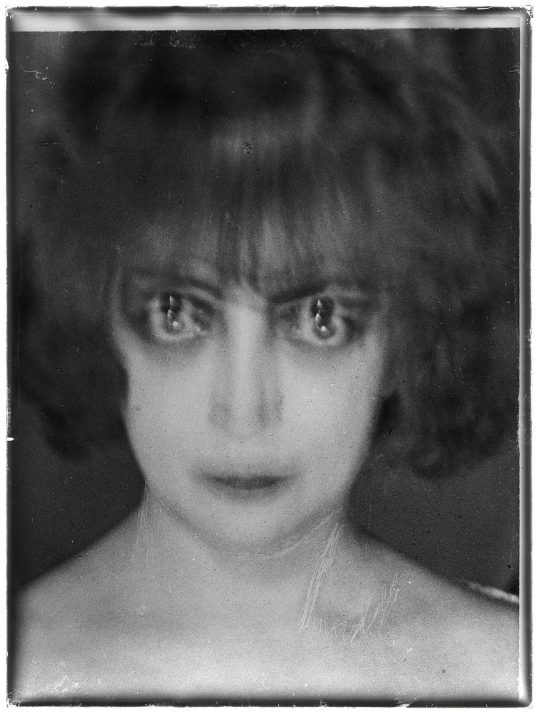
1922 Man Ray, Marchesa Luisa Casati.
"In 1922, Luisa visited a young and still unknown photographer named Man Ray. In his autobiography, the American tells the story of the photo that became the most famous of all the representations of the Marchioness Casati (...) "I drew a few where one could distinguish a semblance of face; On one of the negatives, we saw three pairs of eyes. It could have been mistaken for a surreal version of the Medusa. It was precisely this photo that delighted her: I had made a portrait of her soul, she said, and she ordered dozens of copies from me. I wish my other clients had been so easy to please. The photo of the marquise went around Paris. Figures from the most closed circles began to come, all expecting miracles. I had to leave my hotel room and find a real studio. » (x)
#1922#portrait#photography#man ray#marchesa luisa casati#luisa casati#la casati#la marquesa#marquise casati#casati#marchesa casati#Marchesa Casati Stampa#luisa amman casati#Luisa Adele Rosa Maria von Amman#Luisa Amman#Luisa Adele Rosa Maria Amman#amman#Marquise Casati Stampa di Soncino#Marchesa Casati Stampa di Soncino#Luisa Marchesa Casati Stampa Di Soncino#Luisa Casati Stampa di Soncino#la Marquise#Marquise luisa casati#marquise#medusa#soul#emmanuel radnitzky#master photographer
65 notes
·
View notes
Photo

1971 Cecil Beaton, Marisa Berenson in a Paul Poiret dress as the Marchesa Luisa Casati for The Proust Ball at the Rothschild family’s opulent Château de Ferrières in France, December 1971.
Tribute to Marchesa Luisa Casati.
Marisa Berenson went as Marchesa Luisa Casati to The Proust Ball—the idea of costume designer Piero Tosi, with whom Berenson had just worked on the film Death in Venice. “You are not going to go like all those other women,” he proclaimed, instead dressing her in a Paul Poiret dress adorned with jeweled snakes, a curled red wig, black lipstick, and a black tiara. "When I walked in, nobody recognized me,” she says. “I had so much fun because I was totally sticking out from everybody else.
The Proust Ball (Bal Proust), 1971.
The Proust Ball, thrown in honor of the 100th anniversary of Marcel Proust’s birth in 1971, might be considered Marie-Helene de Rothschild’s greatest triumph. Around 350 guests attended the extremely rich dinner at her home outside of Paris, the Château de Ferrières, with 350 or so more arriving in time for a second, later dinner. Among the guests were Audrey Hepburn, Princess Grace of Monaco, Elizabeth Taylor, and Richard Burton, while Cecil Beaton was the night’s photographer. French model and actress Marisa Berenson remembers the night, saying, “As soon as you arrived at Ferrières it was like going back in time, but more luxuriously with highly refined taste… . The women wore dresses, bodices, big headdresses, tiaras, lots of jewelry. It was truly the era of Proust.” (x)
#1971#cecil beaton#Sir Cecil Beaton#marisa berenson#bal proust#marchesa#la marchesa#la Marquise#La Marquise Casati#La Marchesa Casati#luisa casati#luisa amman#luisa amman casati#La Marchesa Luisa Casati#marchesa luisa casati#Marie-Helene de Rothschild
65 notes
·
View notes
Photo
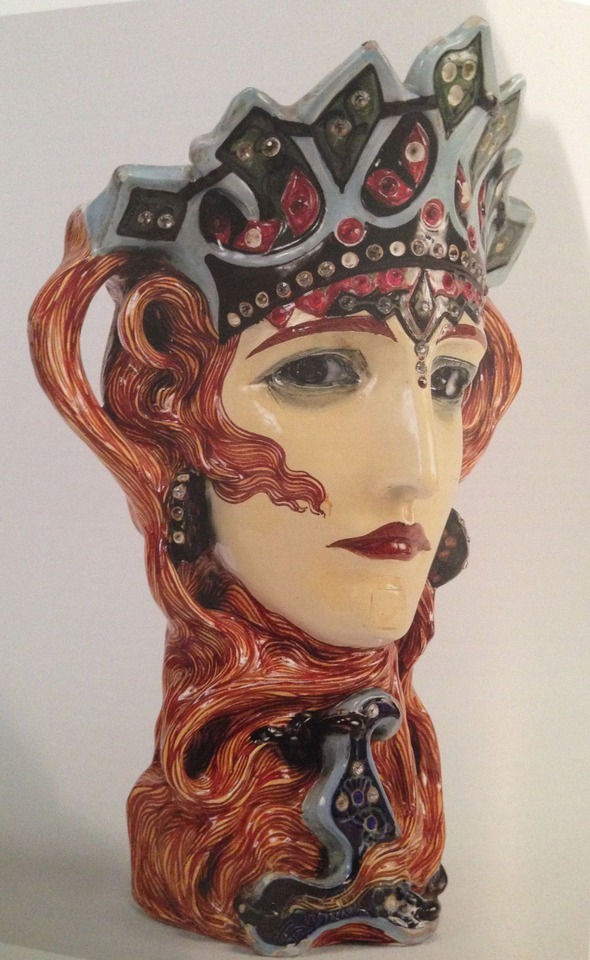
1920 Renato Bertelli, Marchesa Luisa Casati in Medusa Mask, Ceramic glazed ceramic with brilliant cut glass applications, h 37 cm, Ceramic Factory Salvini Ro, Ferrara, Cavallini Foundation.
#1920#mask#ceramic mask#medusa mask#renato bertelli#marchesa casati#luisa casati#marchesa luisa casati#la casati#la marchesa#la marquise#luisa amman#marquise casati#Marchesa Casati Stampa#Marquise Casati Stampa di Soncino#Marchesa Casati Stampa di Soncino#Luisa Marchesa Casati Stampa Di Soncino#Luisa Casati Stampa di Soncino#luisa amman casati#Luisa Adele Rosa Maria von Amman#Luisa Adele Rosa Maria Amman#Marquise luisa casati#marquise
36 notes
·
View notes